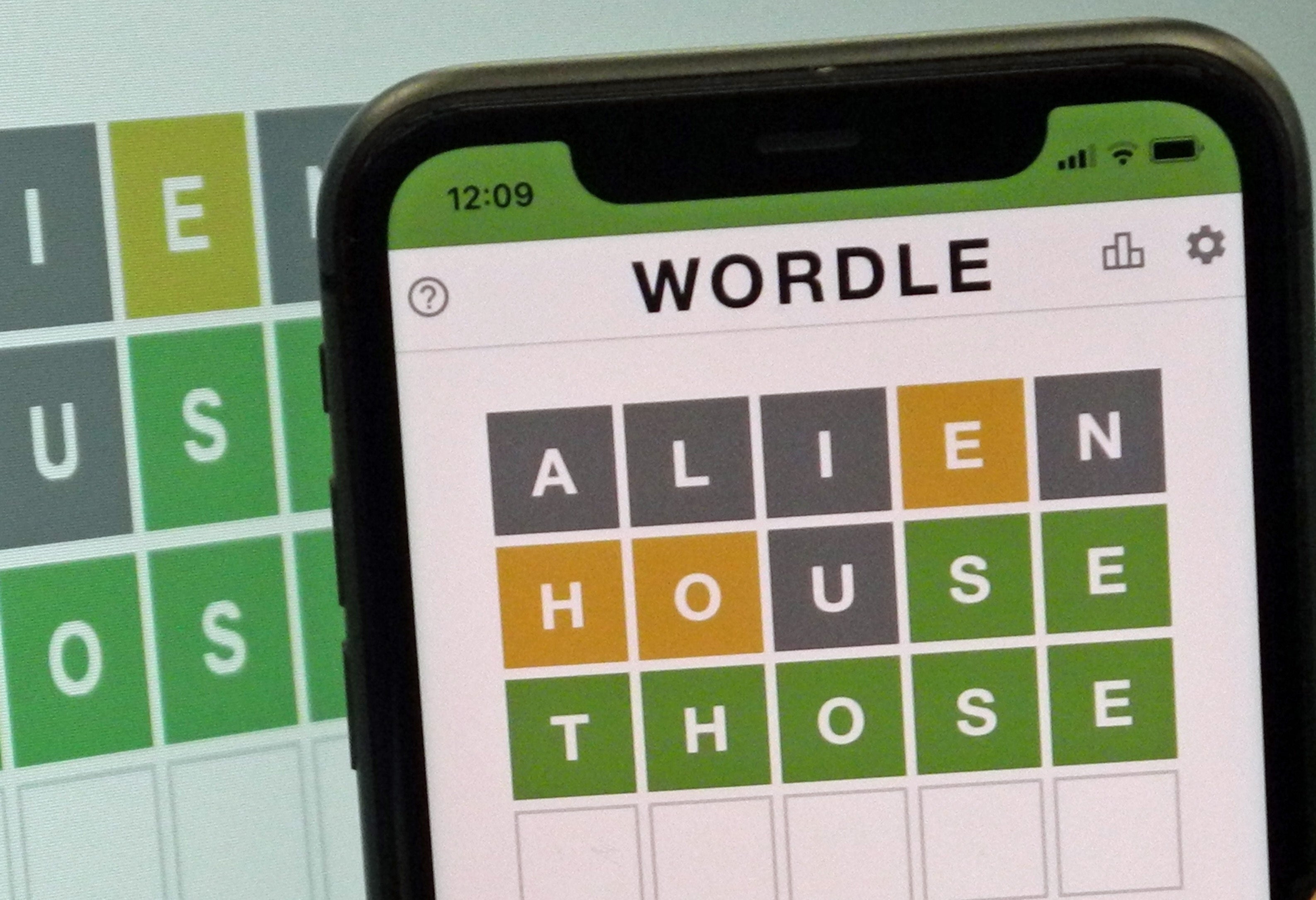Wordle: Your questions on best starting words, strategy and AI answered by a linguistics expert
‘My method is exactly about ruling out letters,’ expert says

A linguistics expert who plays the daily Wordle in three different languages says Swedish is the hardest because there are nine vowels to rule out.
Lynne Murphy, professor of linguistics and head of English language and linguistics at the University of Sussex, answered questions about the popular game in an ‘Ask Me Anything’ event for readers of The Independent.
Professor Murphy, who plays Wordle in English, Swedish and French, said: “I find Swedish the hardest of all Wordles because of the number of vowel-letters to rule out. English has lots of vowels, but since we spell them with just five letters, Wordle is easier. But maybe that’s just my lack-of-Swedish talking.”
Readers were keen to find out the best strategy, including optimum starting words. One commenter shared their Wordle technique: “My strategy relies on the Sherlock Holmes mystery The Adventure of the Dancing Men, where he cracked the code using letter frequency. This suggests a starting word with an optimal choice of letters. You’ll either get some in position, or rule out the most common. I’m still testing the method.”
In response, Professor Murphy said: “I think knowing words by letter frequency is really useful for something like Scrabble, when you want to be able to see the anagrams of common racks of letters quickly. But for Wordle, I think medium-frequency letters can be much more informative.
“When you look at the blanks, you’re trying to fill in information. If you rule out more of the not-unusual, but less-common things earlier, you will have more information for that filling in. The most common letters are not as informative since more words have them.”
Here are five questions about Wordle answered by Professor Murphy.
Do you use a starting word list generated by an AI?
Nope, I use different words on different days and favour the consonant-heavy ones, like CRAMP or DRINK. I want letters that are common enough for it to be valuable to rule them out, while not over relying on vowels, since it’s easier to imagine missing vowels than missing consonants. If CRAMP tells me there’s a P and an R, I’m on my way to ruling out a lot of PR words based on there not being a C, M or A, for instance. The AI lists are based on a computer thinking the word through, but most of us don’t think like computers.
I question your premise: if you have perhaps a savant-like grasp of the English corpus you can, as you say, gain as much from ruling out letters (and words) as ruling them in.
If you have a savant-like knowledge, yes. Computer simulations show SOARE as the best starter word. But that depends on knowing all the words, knowing the right order to guess them in (which the simulations work on), and losing guesses to the words (like SOARE) that aren’t in the possible-answers list.
But playing my way, I get the answers in four or fewer usually. I don’t think the starting word matters as much as many people want it to... One or two guesses is luck. Three might be skill.
And using my method I don’t wind up in the situation as often where you get something like S_A_E and use up all your guesses on words it could’ve been but isn’t.
But use whatever method you like! It’s fun!
(I’d also say that my method is exactly about ruling out letters.)
Have there been any answers you’ve felt might have been easier for people on one side of the Atlantic or the other?
CAULK was definitely much easier for Americans, though my UK DIY-happy friends were very happy with it, because it was in their specialist knowledge. I’d say British English says “sealant” rather than “caulk”. (Polyfilla is what we Americans call “spackle”). Other than that, it’s mostly been the US spellings that have tripped up non-Americans
Have there been any answers that you’ve particularly enjoyed or disliked, and if so why?
Great question. I wish I could remember enough of those words to answer it. I suppose I like the ones that are a bit off-the-beaten-track of English spelling. Like the recent CYNIC, which was nice and tricky for having both two of the same letter - C, and a Y as a central vowel.
Do you think there’s any broader lessons to be taken from this? Is over-relying on AI generated "objective" optimum solutions and ignoring the human element an issue elsewhere in linguistics?
The optimum solutions posts/videos I’ve seen have all been by AI folk or statisticians who want to teach people about how their fields work. They know the AI doesn’t work like a human, but they consider it an interesting problem and a way to demonstrate to the public how their field works. I think the problem is the headlines that these things generate, where they are treated as THE optimum solution without looking at the difference between what humans do and what computers do. That’s the really interesting bit, which I wish the papers would cover more. Less “LOOK AT HOW SMART THIS AI IS” and more "Look at these interesting ways that AI misses the human experience and why."
These questions and answers were part of an ‘Ask Me Anything’ hosted by Lynne Murphy at 12pm on Monday 21 February. Some of the questions and answers have been edited for this article. You can read the full discussion in the comments section of the original article.
Do you have any topics you’d like to see an expert host an ‘Ask Me Anything’ on? Let us know your suggestions in the comments below.
Join our commenting forum
Join thought-provoking conversations, follow other Independent readers and see their replies
Comments
Bookmark popover
Removed from bookmarks